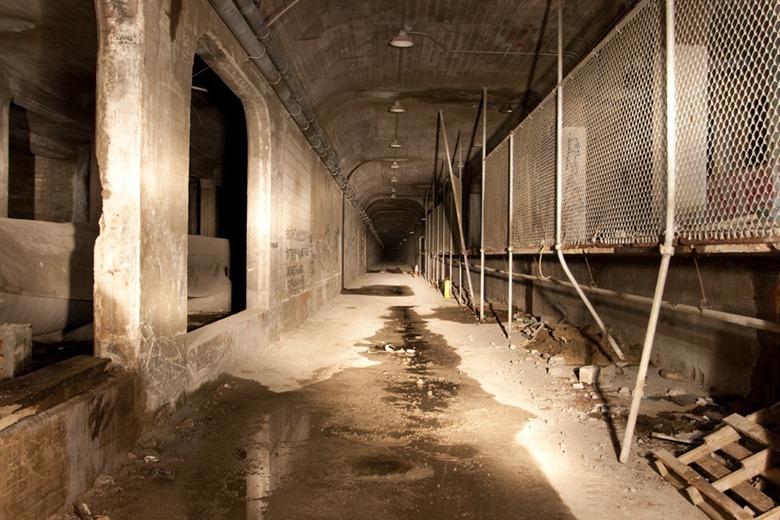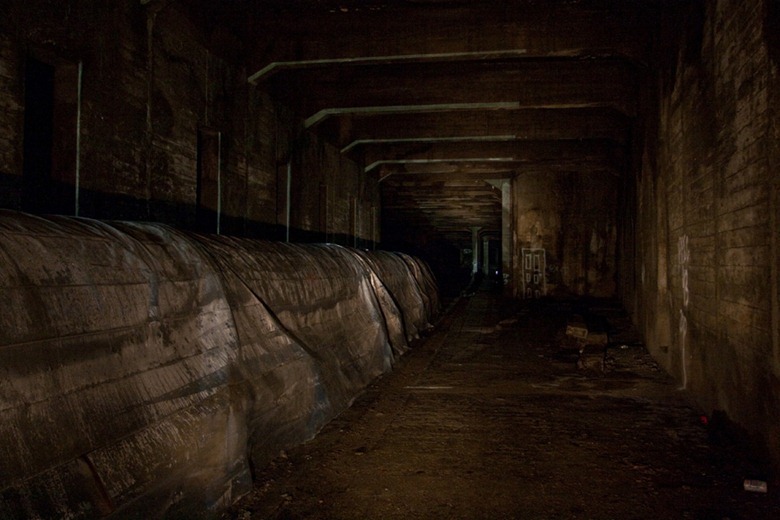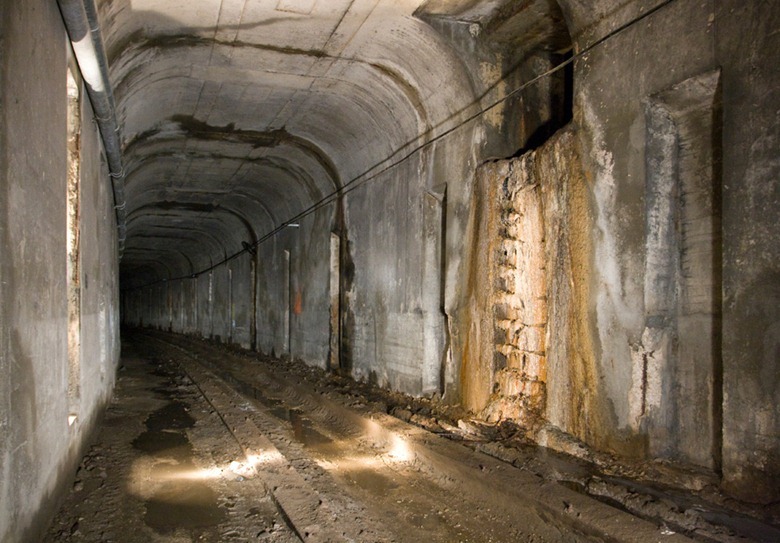
Unknown to many Cincinnatians, sprawling under their feet is a vast network of abandoned and derelict subway tunnels – in fact, the United States’ largest abandoned subway tunnel. Construction of the Cincinnati subway began sometime around 1917, however, just 11 days earlier the United States entered World War I and construction was halted. By 1925 construction slowed to a stop before even half of the proposed 16 mile line was completed. Seven miles between Cincinnati's central business district and the industrial suburb of Norwood were tunneled, bridged, or graded, but no track was laid and no subway cars were ordered. No passengers ever rode between the six stations that were built.
Photo credit: Wikipedia
The incomplete Cincinnati line sat fallow through the Great Depression and WWII. Bridges, stations, and retaining walls along the surface stretches deteriorated to such an extent that a few items actually collapsed. Nearly everything above ground was bulldozed to make way for portions of I-75 and the Norwood Lateral in the 1950's and 1970's, respectively. The mute two mile tunnel that remains under Central Parkway is unknown to many Cincinnati natives.

A photo from the early 1920s show construction of the subway

The Race St. Station is the largest station in the system, and would have been one of the main downtown hubs. It's the only station that has a central platform, and three tracks.

The Liberty St. Station is the first stop north of Race Street. This station is infamously well known for Cincinnati's attempt to retrofit it as a faux-fallout shelter during the 1950's and 1960's.

Linn St. Station is completely sealed over at the edge of the platform

Brighton Station is the northernmost subway stop that was built, past this point a few more above ground stations were built at places like Ludlow Avenue, Clifton Avenue, etc. on the route up through Norwood








No comments:
Post a Comment